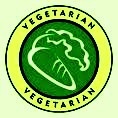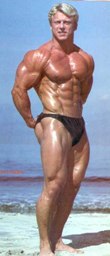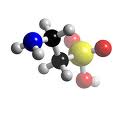|
How to become a vegetarian
How to become a vegetarian is not complicated and can be a fairly painless change. A vegetarian diet can be a healthy diet if done properly but it can also be just as bad as the Standard American Diet (SAD) if not researched. First, let me mention that I was a vegetarian for 14 years. I read a book called ‘Food for a future’ and it influenced me to adopt the diet on New Years day, 1980. I have since gone back to meat eating but I did fine on a vegetarian diet for all those years. It was difficult back then because it wasn’t nearly as accepted as it is now and I remember once being refused service at a restaurant because I ordered a salad. Hard to believe but true. You can be healthy on this diet and you can be fit. In fact I went through special forces as a vegetarian. If I could do it back then without the internet then you should have no problem learning how to become a vegetarian.
Although I am not a vegetarian any more I am not against it. I just do not believe any more that we are designed to eat that way. That doesn’t mean I won't show you how to become a vegetarian. It is just my opinion. I well understand the health, ethical and environmental aspects of becoming vegetarian and why you would want to learn how to become a vegetarian. There are very good reasons for becoming a vegetarian, and it is possible to follow a healthy vegetarian diet and be fit. However, it can make it difficult to put on muscular weight and the only successful bodybuilder I know of who was vegetarian was Andreas Cahling (see photo, although I believe there are a few more now. Bill Pearl was also vegetarian but he built his body first and then switched to a vegetarian diet later. Of course you don't need to have this level of development to achieve an electric physique but the diet will generally keep your bodyweight low.
Andreas Cahling
Bill Pearl Because of the variety of vegetarian diets, vegan, lacto, ovo, fruitarian, etc it may seem difficult to learn how to become a vegetarian.I was a lacto-ovo vegetarian which means that I ate dairy products and eggs and I felt fine as a vegetarian. Other vegetarians sometimes leave out the dairy or eggs or both. Vegans don’t eat any animal products at all or have anything to do with products derived from animals. Although I felt fine I was constantly consuming sugar, either in cups of tea or in chocolate bars, cakes, ‘health’ bars or as carbs like rice or bread and also honey. This was because I was either not giving myself enough protein and continually spiking the sugar levels in my blood with junk carbs and this made it difficult to keep a stabilized blood sugar level. In those days there wasn't much around to guide you on how to become a vegetarian...at least a healthy one. I found that once I went back to meat, my cravings for sweets diminished considerably. That doesn’t mean that you couldn’t do better if you made sure your vegetarian diet has plenty of protein or avoids carbs that cause an insulin surge. It is possible to exist on a low carb vegetarian diet as well but more difficult and a google search will bring up some detailed information. You should be able to minimize grains and increase fats to compensate and stay low (concentrated) carb but it will take some research and effort on your part. A vegetarian diet should be high carb in terms of vegetables and low glycemic fruit but low (concentrated) carb in terms of rice, potatoes, bread, other grain products. Difficult but not impossible. Unfortunately, these latter foods form the basis for most vegetarian diets. This abundance of carbs probably doesn't bother most people who want to learn how to become a vegetarian and let's face it, most of the worlds population lives on high levels of carbohydrate with varying degrees of success.
Rule No.1: Cut out sugar How to become a vegetarian First, cut down or cut sugar from your diet completely. It really is a dangerous substance. If you want to learn how to do it see my 'sugar addiction' page here. Next, start to decrease the amount of meat (beef, chicken, fish) in your diet. Don't replace it with fake meats from health food store or health bars. These are usually bad foods like tvp (textured vegetable protein)or based on soy products, or in the case of 'health bars' loaded with various forms of sugar. Increase the amount of eggs and dairy products in your diet or if you decide on a vegan diet buy a plant based protein powder to keep your protein levels high. It doesn't hurt to invest in a good protein powder anyway so that you can maintain a high protein level which will minimise cravings for sugar. Try and get one with around 4 grams of glutamine per serve. Glutamine is the most abundant amino acid in the muscles of the body. Though non-essential it aids in protein synthesis. • Include a wide variety of fruit and vegetables, raw and cooked • Eat nuts and seeds • Consume vegetable oils (only coconut or olive oil). • Grain products are often a mainstay of a vegetarian diet but as discussed on other pages on this site they are not a great choice for the human body. However there may be grain products that won't spike your insulin levels, i.e. they have a low Glycemic Index. One that I have used is e'pap from South Africa based on maize (not ideal but pretty good)and then you have the more recent exotic grains (or seeds) like Quinoa. • Soy products. I have serious doubts about soy as a food for humans but do your research. • Dairy products such as cheese, cream, yoghurt, milk, butter. Not really designed for humans but can provide essential nutrients.
• Eggs. A good protein source as well as other nutrients. Should be an integral part of a vegetarian diet It also wouldn't hurt to invest in a protein supplement/weight gainer as I mentioned above, especially if you are underweight. Vegan vs vegetarian. A vegetarian or vegan diet can improve your health especially if you cut out the crap that most people eat. However, there is plenty of anecdotal evidence and recently some scientific studies that show that a long-term vegan diet can lead to health problems. I don’t want to put you off but you should at least be aware of some of the issues involved in learning how to become a vegetarian. If you were going to choose between the two then I would suggest a lacto-ovo (dairy and eggs)vegetarian diet to start with until you learn more. Issues Loren Cordain wrote a book on the ‘Paleodiet’ and is a very knowledgable researcher and a nice guy. He pretty much said the following which gives us some insight into supplementation if you want to learn how to become a vegetarian: Biochemical and metabolic adaptations in hominids (including humans) indicate “an increasing physiological dependence upon animal-based foods” (Cordain 1998:1). The human gut is much smaller than that of apes. Ape diet is largely plant-based and the ape gut is more metabolically active than that of humans due to the higher processing requirements of these fibrous plant foods. The inclusion of animal-based foods in the diet of our hominid ancestors allowed for a reduction in size and metabolic activity of the gut due to the fact that these foods are nutrient-dense (Cordain 1998). Basically what Dr.Cordain is saying is that we have evolved or adapted to eat meat as it has advantages in terms of nutrient density, e.g. you would have to eat a lot of plant food to get the same amount of protein that you would get from a small amount of meat, not to mention Taurine which you cannot get from plants.
Taurine molecule Taurine The amino acid Taurine is an essential nutrient in all mammalian cells and is absent in plant foods. Humans have a limited and inefficient ability to synthesise Taurine in the liver. Herbivores (plant eaters) can synthesise taurine well but cats (complete carnivores) have to obtain it from their meat diets. It appears that selective pressures to produce taurine have reduced in humans over time as we became more reliant on animal foods. This means that you need Taurine and you can’t get it from plant foods. You will need to supplement, especially if you are vegan. Vitamins A and B-12 synthesis Contrary to popular belief vitamin A is not found in any plant. Plants do contain beta-carotene which is converted to vitamin A in the liver of all animals. Vitamin A is a requirement of all animals, some animals (e.g.cats) are unable to synthesise it since this requirement reduced and finally disappeared as they gradually became completely carnivorous. The human capacity to absorb beta-carotene from plants is limited presumably due to the long history of human use of vitamin A-rich animal foods. Carnivorous and herbivorous animals require vitamin B-12 as an essential nutrient. "Vegans demonstrate a trend of long-term negative B-12 balance” (Cordain 1998). Cats and humans rely on animal sources to provide their vitamin B-12 requirements which is indicative of a long history of animal food consumption. This means you will need to supplement with Vitamins A and B12 and want to learn how to become a vegetarian (especially vegan).
No known hunter-gatherer groups were vegetarian People interested in learning how to become vegetarian sometimes develop a belief that there were pristine groups of early humans living on vegetarian diets and living in harmony with the earth and in peaceful co-existence with others. Cordain et al.(2000:687) found that “No hunter-gatherer population is entirely or largely dependent on gathered plant foods”, whereas 58% of the 229 hunter-gatherer societies listed in the Ethnographic Atlas obtained >= 66% of their diet from animal foods, and only 4% obtaining the >=66% from plant food. This means that no hunter-gatherer group that we know of was totally vegetarian or vegan. Also there have been very few vegetarian bodybuilders and it can sometimes be difficult to put muscle on so from a visual point of view it can work against you. If it is an ethical stance then by all means go for it but from a health point of view there are better and easier diets in my humble opinion. However, I do understand your concern for animals and I respect it. You are an animal too so to make sure in your quest to learn how to become vegetarian that you don't do yourself long-term damage I'd suggest some supplementation. First though I would cut out all soy products. Soya beans are cheap and the marketing people have convinced us they are healthy and full of phytoestrogens. Unfortunately phytoestrogens are dangerous and even small amounts can disrupt thyroid function. There are a host of other problems with soy as well. Instead of soy look around for a plant based protein powder (usually pea or rice protein) Use coconut milk or raw coconut oil as a source of saturated fats Buy a multi-vitamin/mineral supplement that includes Vit E,D,B12,calcium, iron, zinc, folic acid, selenium and riboflavin You may not be able to buy all of these in the one product. Do some research on the best form to get (e.g. chelated, from natural sources, etc). Unfortunately though, it seems that some of them aren't readily absorbed by the body and this can lead to serious deficiencies over time. Vegetarianism and Anorexia It may seem a strange combination but vegetarianism in teenagers can sometimes lead to anorexia or simply be a cover for anorexia. Some pre-teens and teens want to learn how to become a vegetarian to cover the fact they want to avoid meat because of the fat and calories in it. It is also important to differentiate between an ideological stance and an aversion to meat based on taste. If meat tastes strange to you it may be due to a zinc deficiency. A great number of people are zinc deficient and the number is particularly high amongst anorexics. If you have a teenager who wants to learn how to become a vegetarian they can quickly develop a zinc deficiency or may already be suffering from zinc deficiency. A lack of zinc can cause decreased appetite, weight loss, depression and altered taste perception - which may all lead to the development of anorexia. If you or your child are considering how to become a vegetarian and decide to go down that path make sure you take a zinc supplement as a priority. You can get a product from a chemist or health food store called 'Zinc Tally'. You take a small amount and depending on what taste you perceive (.e.g. none, metallic, strong bad, etc) you can get an idea of whether you are zinc deficient. If you are deficient I suggest that you purchase a liquid zinc supplement to get your zinc levels back to normal. Use the 'zinc tally' to determine when your levels are OK. And if you are considering a Vegan diet I thoroughly recommend that you read the interview below first. Her initial article caused a great deal of discussion and angst in the vegan world. Read it Personal experiences of how to become a vegetarianIn your path to learning how to become a vegetarian it helps to have role models who have traveled the path before you to act as guides. I have included some personal experiences of my friends below:

Fern; Age 25. Vegan for 2 years. Fern became vegan from a philosophical slant due to firstly, her concern for environmental degradation and secondarily, animal rights. She did not specifically change to become healthier though she has found that she does feel healthier on this diet. She also uses supplements based mainly on the advice of friends who are vegan Though vegan she will at times consume dairy products but only if they are part of freeganism i.e. the practice of reclaiming and eating food that has been discarded. An example she gave was the consumption of yoghurt that a friend procured for free, therefore no cash was used to support the dairy industry. She also is flexible with veganism when travelling as she finds it difficult to follow this diet in some countries. Her most recent trip was to Cuba, a country which she felt did not cater to vegans at all (I can relate to this as I found it very difficult to follow a vegetarian diet in the Middle East). The only downside she has found to the diet is in terms of her interactions with friends when they go out for meals. She feels that she may seem difficult when she has to ask about ingredients or ask for specifically vegan food. She does not think her friends really have any problem with her veganism but it is her own feelings about how she may appear difficult. In her own words “I found the change to veganism surprisingly easy. I was fairly nervous, because I hadn't really had any special dietary anything before, but I generally cook for myself and I discovered that a lot of the meals that I already cooked often were already vegan or easily adaptable. There are a couple of things that I miss every now and again (cheese toasties, ice cream, normal pizza), but it's really not too hard to do without them”. If you want to learn how to become a vegetarian it pays to be informed so it may be helpful to purchase one of the books below before you make changes to your diet. Good luck
Leave the How to become a vegetarian page and return to Health page
|







